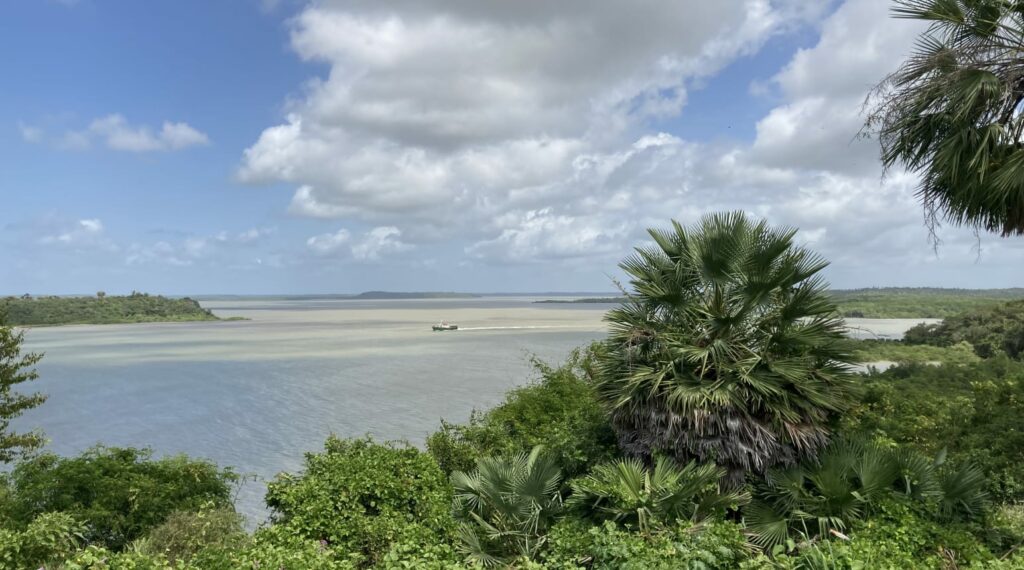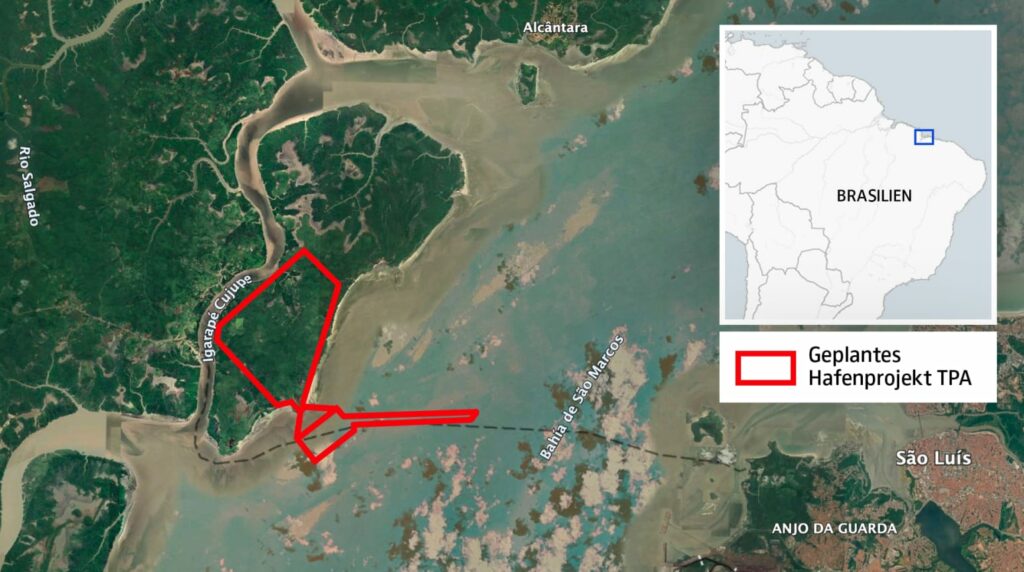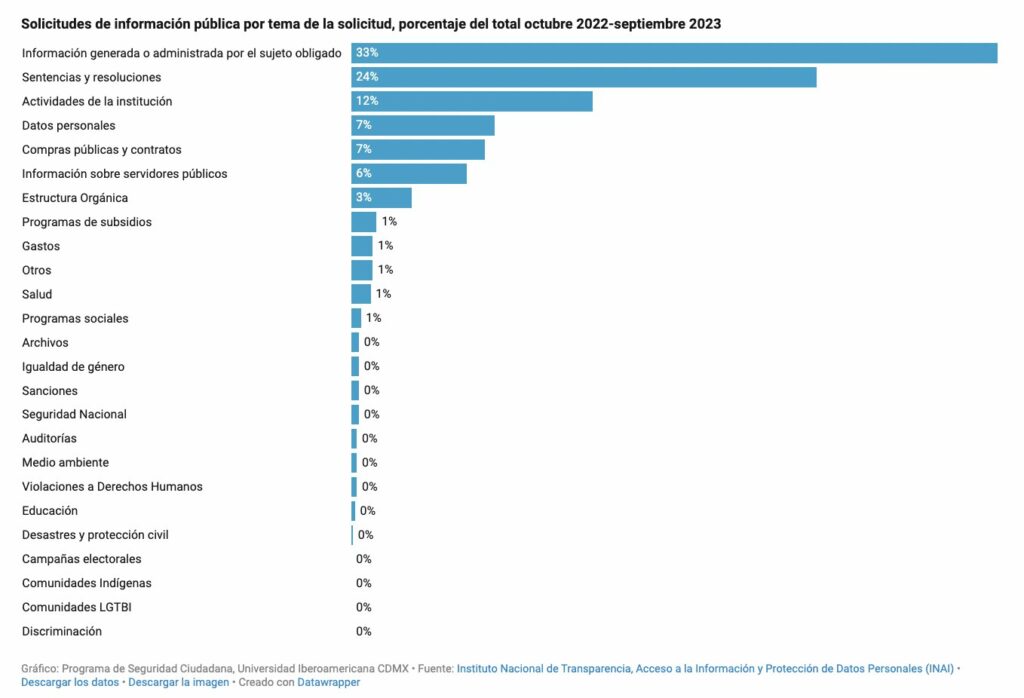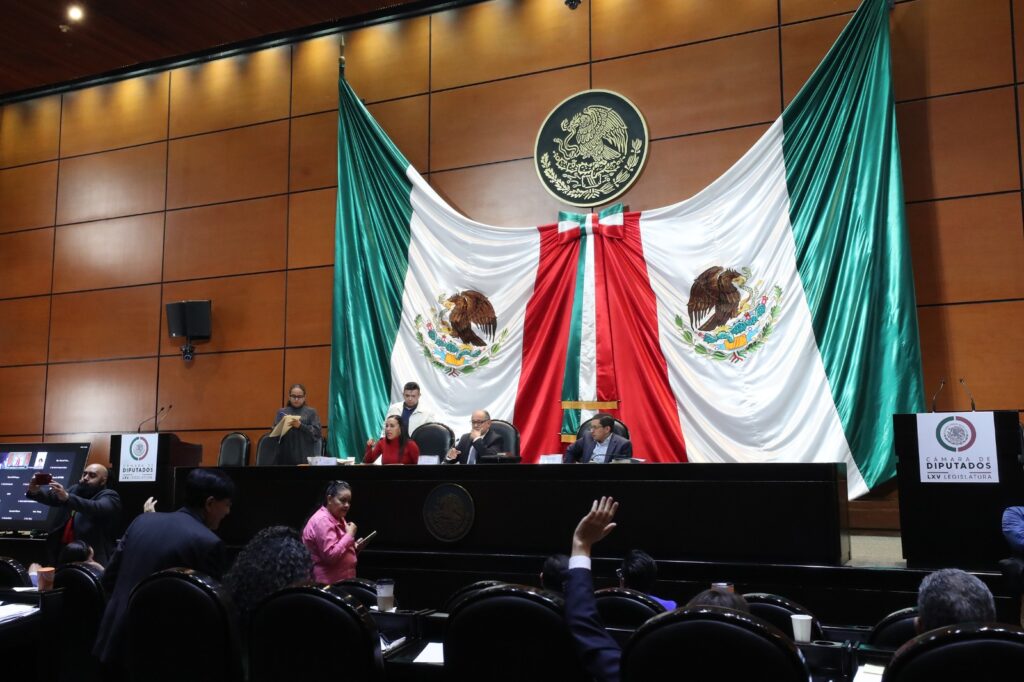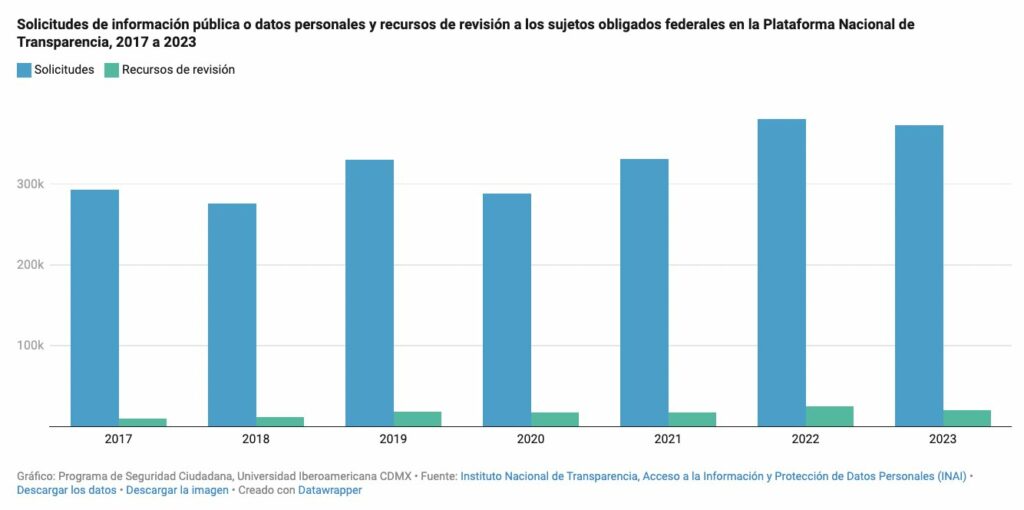
resistencia
Comunicado de la Asamblea General Permanente del pueblo de San Gregorio Atlapulco por criminalización a la defensora del territorio Hortensia Telésforo
La Asamblea General Permanente del Pueblo de San Gregorio Atlapulco hace público el presente comunicado. Externamos este texto como una denuncia pública ante la criminalización del Estado, en especial de la Alcaldía Xochimilco, hacia la defensora del territorio Hortensia Telésforo, a quien buscan criminalizar por su participación activa en las actividades comunitarias del San Gregorio y en especial por su participación en la Casa del Pueblo Tlamachtiloyan de Atlapulco.
Exigimos a la Alcaldía Xochimilco que desista esta criminalización, pues la Tlamachtiloyan, antes biblioteca comunitaria, pertenece al pueblo originario de Atlapulco por decreto presidencial y su recuperación es una demanda que se mantiene desde la represión de diciembre de 2022 por la usurpación de este espacio por parte de la administración de José Carlos Acosta.
¡La defensa del territorio y la autonomía, no son un crimen!
¡Aquí estuvimos, aquí estamos, aquí estaremos!
¡Fuera la alcaldía, viva la autonomía!
#atlapulco #tlamachtiloyan #comunicado #xochimilco
Asamblea Nacional por el Agua y la Vida Coordinación de Pueblos, Barrios Originarios y Colonias de Xochimilco Frente por la Defensa de los Derechos de los Pueblos y Barrios del Anáhuac
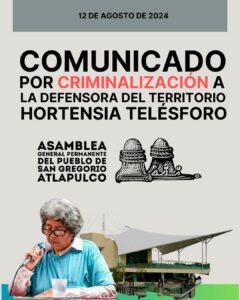
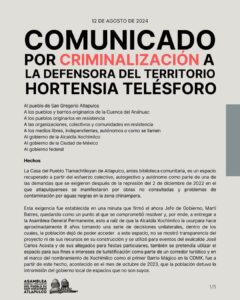
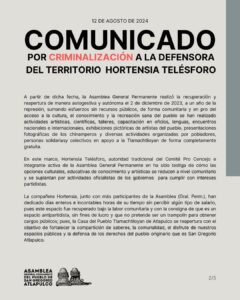
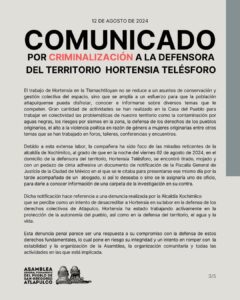
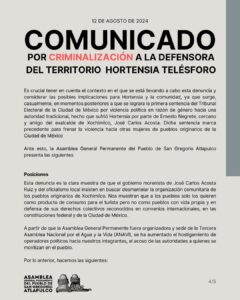
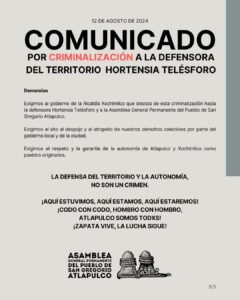
Comunicado de MAIZ: ¡Exigimos la justicia y presentación con vida de nuestro hermano Sergio Rivera Hernández!
A los medios de comunicación, organizaciones sociales y de derechos humanos
Al Congreso Nacional Indígena
A los pueblos indígenas de México y del mundo
Y a la sociedad en general
Exigimos la presentación con vida de Sergio Rivera Hernández y responsabilizamos al Estado mexicano.
El 23 de agosto de 2018, Sergio Rivera Hernández, defensor del agua y del territorio, activista indígena nahua, fue víctima de desaparición forzada en la Sierra Negra de Puebla. Sergio, padre de familia y mecánico de profesión, dedicó su vida a la defensa del agua y el medio ambiente, enfrentando el proyecto hidroeléctrico Coyolapa-Atzalan, impulsado por la empresa minera Autlán, el cual representa una grave amenaza para los ríos y ecosistemas de la región.
Sergio Rivera Hernández no solo luchaba por su comunidad, sino por el derecho de todos los pueblos indígenas a decidir sobre el uso de sus tierras y recursos naturales. Su desaparición es un trágico ejemplo de la violencia sistemática que enfrentan los defensores de derechos humanos y del medio ambiente en México, donde intereses económicos suelen imponerse sobre la vida y los derechos de las personas.
Ante esta situación, exigimos:
1. La inmediata presentación con vida de Sergio Rivera Hernández. Responsabilizamos al Estado mexicano por su desaparición y demandamos justicia ante la evidente falta de imparcialidad y corrupción que han permitido que sus captores permanezcan impunes. Exigimos su localización y el castigo de los responsables.
2. La protección efectiva de todos los defensores de derechos humanos y del medio ambiente.Es indispensable garantizar la seguridad de quienes, como Sergio, arriesgan sus vidas para proteger sus territorios y recursos ante el constante acoso y amenaza de megaproyectos destructivos en todo el país.
3. El cese total de la criminalización y represión de los movimientos sociales que se oponen a proyectos extractivos. Exigimos también un alto inmediato a la guerra contra las comunidades zapatistas y el respeto irrestricto a los derechos de las comunidades indígenas ante cualquier amenaza.
4. El fin de la impunidad en casos de desaparición forzada en México. El Estado mexicano debe cumplir con sus obligaciones internacionales en materia de derechos humanos, investigando y sancionando a los responsables de estos crímenes con todo el rigor de la ley.
Sergio Rivera Hernández es una víctima de la guerra contra los pueblos indígenas y de los intereses económicos que prevalecen en nuestro país. Exigimos justicia y la presentación con vida de nuestro hermano.
¡Porque vivo se lo llevaron, vivo lo queremos!
Atentamente,
Movimiento Agrario Indígena Zapatista
30 de agosto de 2024

